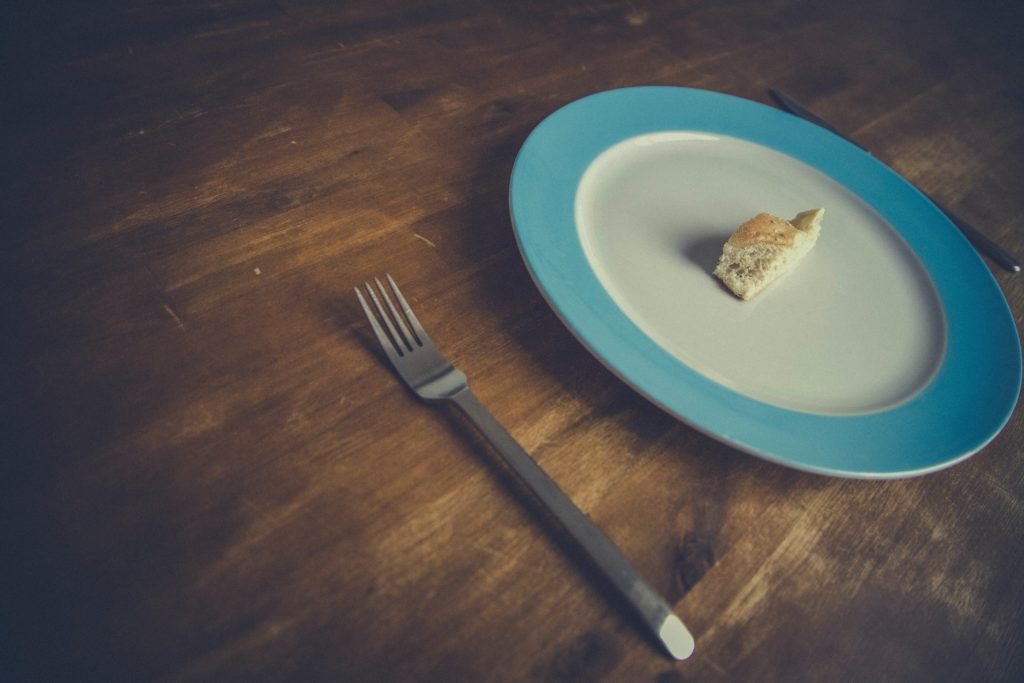Everything About ‘Not Eating Enough’ – Facts, Signs and Symptoms and How to overcome.
‘Not eating enough’- Under-eating is often overlooked and its implications are under-rated specially in recent years when most of the people are crazily following one or other weight loss program/diet as those being popular trend these days. While internet is full of article like “how to lose weight fast”or “how to get flat belly”, it is significant to understand the importance of healthy diet and how under-eating can impact our physical and mental health just like over-eating. Eating too little can backfire and often leads to chronic fatigue and other serious health issues.
Facts about Under-Eating
Under-eating is not always intentional, many times these diets are misinterpret by a person or have missing piece about importance of proper nutrition. Our daily hustle and bustle, stress, busy schedules, illnesses, grief or any underlying disease can also contribute to our loss of appetite and eventually we end up our day by not having enough.
Reasons for Not eating enough or Under-Eating :
- A restricted diet
- Above average physical activity levels
- Stress or trauma
- Fear of certain foods and food groups
- Daily Hustle and bustle
- Chronic dieting
- Pregnancy/breastfeeding

The health risks that can be associated with Under-Eating:
- Bone health issues: osteoporosis and bone fractures
- Infertility
- Developmental problems
- A weakened immune system
- Malnutrition
- Increased risk of surgical complications
- Anemia
- Chronic fatigue
Signs and Symptoms that tell you’re not eating enough:
“A healthy inside is healthy outside” a popular saying stands true when it comes to healthy diet and proper nutrition.
Our body is very intelligent and will give us all the signs of a thriving body when eating the right foods versus a depleted body. Some signs of under-eating are easy to spot. Some of signs present more immediately than others, while others take weeks or months. Signs and symptoms that a person may not be eating enough include:
- Fatigue: Its all Calorie game. Our body need calories to function. Restricting calorie intake can slow down our metabolic rate and lead to fatigue due to insufficient energy to exercise or perform movement beyond basic functions.
- Dizziness: Dizziness can be one of the first physical signs of not eating enough. It can be due to drop of blood sugar levels due to less food intake or dehydration.
- Poor mental concentration: Little moments of forgetfulness like “oh! Where did I put my phone?” can be as sign of under-eating.
- Getting ill more often: Under-eating can also lead to an imbalanced diet. This can mean that a person’s body does not receive enough of specific nutrients to maintain a healthy immune system and fight off illnesses.
- Skin problems, Hair Loss and Brittle Nails: Dull pale skin, loosing locks of hairs than usual, brittle nails are most common sign of not getting enough nutrition. Our hair, skin, and nail health is closely tied to what we eat along with how many minerals, healthy fats, protein, and overall nutrients body is absorbing.
- Feeling Cold: Our body require a sufficient level of calories to maintain a healthy body temperature. In fact, even mild calorie restriction has been shown to lower core body temperature.It might be because of decrease in T3 thyroid hormone that helps maintain body temperature, among other functions.
- Constipation: When a person under eats, their body has less food to convert into stools, which can cause constipation. Apart from this decreased bowel movement and slower metabolic rate further add to constipation.
- Moody and Irritable: Sometimes busy with daily hustle we do miss our meal making us moody and irritable. “Eat food, not me” is my husband’s favorite dialog whenever this happens with me. Low blood sugar is associated with dips in mood and sometimes headache, migraine and lightheadedness.
- Loss of period or normal menstrual function: Loss of period is often called Amenorrhea. It can happen if a person has low body fat (or is underweight). Being underweight can stop ovulation and cause abnormal changes in hormones or just lack of nutrients can cause Amenorrhea. This is the first sign of infertility due to not eating enough.
What to do if you’re Under-Eating?
If you’re experiencing any of the above signs, it’s important to see a healthcare professional such as a GP. Seeing a GP is important as under-eating can also be a sign of medical conditions including depression and eating disorders. A doctor can help rule out other causes and adjust your medications if needed. Even its not related to any underlying condition. Speaking to a professional and getting a blood test is important to ensure that there is no nutritional deficiency and if any supplementation is required. A professional may help come up with a plan for adding more nourishing, energy and nutrient-dense foods to restore health.
How to overcome Under-Eating and increase calorie intake?
The primary goal would be to understand the reason for under-eating. If its due to intentional dieting then it would be valuable to understand why were you not eating enough? Is it any health issue, you are overweight or just chasing the trend? If something is in trend doesn’t necessarily mean it would be good for everyone. Learn to love your body and focus on healthy weight and diet. Determining exactly how many calories you need to eat on a daily basis for optimal health and weight control is tricky. Many factors come into play, including your physical activity, stress levels, sleep adequacy, history of chronic disease, and more.
Tips to overcome under-eating healthfully:
- Eat smaller, but more, meals. If eating more is a struggle for you, try preparing more meals each day. Break a bigger breakfast and lunch down into four separate servings.
- Snack more. Eat between meals too. Make it convenient by bringing along your own supplies like smoothies, yogurt, and nuts.
- Focus on whole foods. The quality of your food matters as much as the amount. Avoid filling up on junk food with excess sugar and salt that cause inflammation and other troubles. Stick to healthy fare like vegetables, whole grains, and fish.
- Increase protein. Foods rich in protein are especially helpful for providing energy and strengthening body muscles and bones. Include some protein in each meal and snack so you’ll be able to digest it more effectively.
- Choose healthy fats. Consuming more fat is a simple way to take in more calories from the same amount of food. Add a little more olive oil to hummus and roasted potatoes. Switch to whole fat dairy products. Start the day with a serving of salmon or other fatty fish.
- Take supplements. Under-eating often creates nutritional deficiencies, so you may need supplements at least temporarily. For example, essential nutrients that can’t be synthesized in our body. Follow your doctor’s recommendations which may include calcium, iron, and specific vitamins.
The bottom line:
Understanding the importance of healthy eating can help maintain a healthy weight and lowers the risk of health complications and increases chances for living a long and active life. Although some people believe that weight loss is the only way to self-acceptance, it is much more reasonable to accomplish this through eating healthy foods, exercising, and listening to signals of our body. If you feel worried you may be not eating enough, experiencing disordered eating, reach out to a healthcare professional today.

